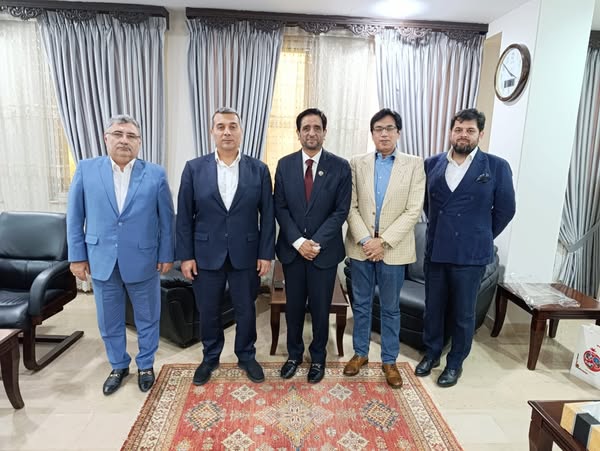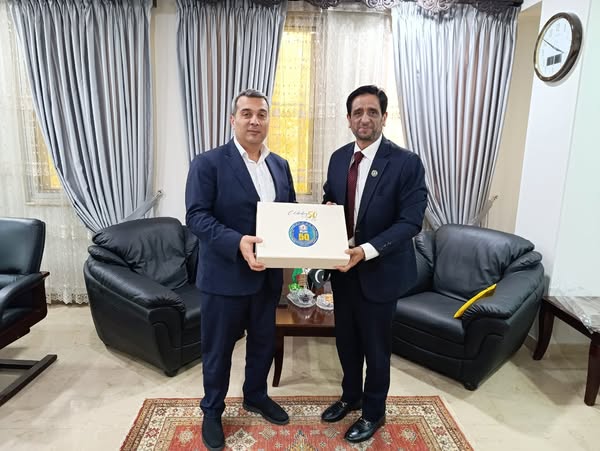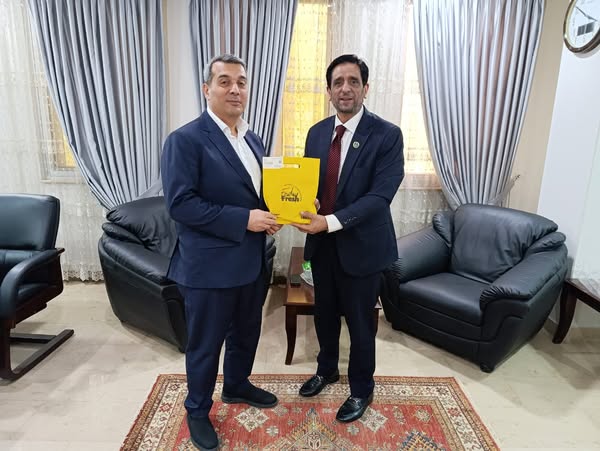A high-level meeting was held between Azerbaijani and Pakistani business representatives to explore avenues for enhancing bilateral trade and investment. The discussions were led by Ambassador of Azerbaijan Khizar Farhadov and the Trade Representative of the Consulate General of Azerbaijan, who met with Adeel Shuja Butt, President of the Azerbaijan Trade House, and Rehan Naseem Bharara, President of the Faisalabad Chamber of Commerce and Industry (FCCI). The talks focused on expanding economic cooperation, with particular emphasis on key sectors such as agriculture, textiles, and energy.

Both sides acknowledged the untapped potential in trade relations and agreed to take concrete steps to boost commercial exchanges. In agriculture, the possibilities of technology transfer, joint ventures, and increased exports of Pakistani agro-products to Azerbaijan were discussed. The textile sector, a cornerstone of Pakistan’s economy, was highlighted as an area where Azerbaijani businesses could benefit from Pakistan’s expertise while providing access to regional markets. Additionally, energy cooperation emerged as a critical area, with Azerbaijan’s rich oil and gas reserves offering opportunities for collaboration in LNG supplies, renewable energy projects, and infrastructure development.

The meeting underscored the importance of institutional partnerships between trade bodies and government agencies to facilitate smoother business interactions. Proposals such as organizing trade exhibitions, business delegations, and sector-specific workshops were considered to foster deeper engagement. The involvement of the Faisalabad Chamber of Commerce and Industry—a key industrial hub in Pakistan—signaled strong private-sector interest in strengthening ties with Azerbaijan.

This dialogue marks a significant step toward transforming diplomatic relations into tangible economic benefits. By leveraging their respective strengths, Azerbaijan and Pakistan aim to create a robust trade framework that not only enhances bilateral commerce but also positions them as strategic partners in regional and global markets. Future follow-ups are expected to translate these discussions into actionable


